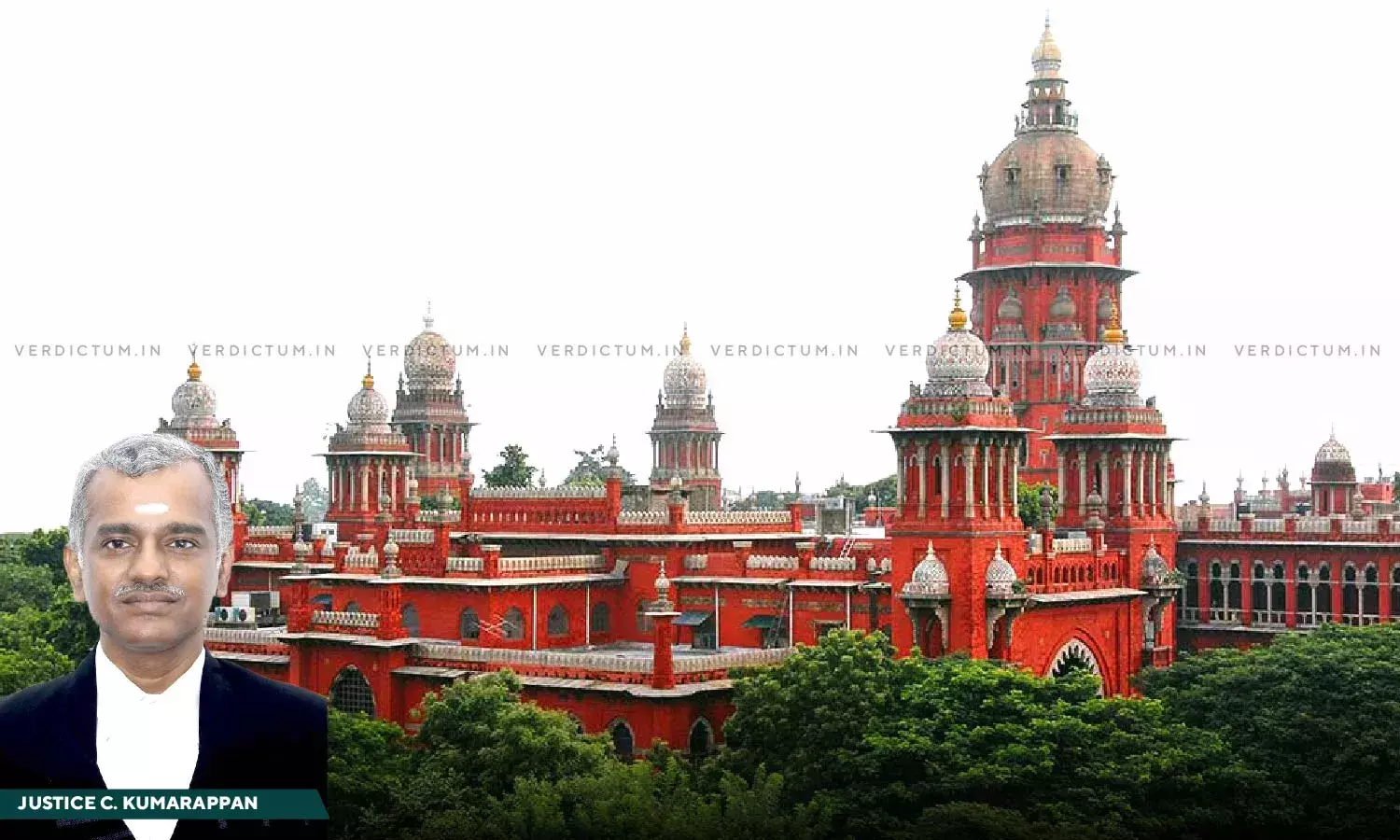Duty Is Cast Upon Claimants To Submit Original Medical Bills Instead Of Copy For Claiming Compensation On Account Of Hospital Expenses: Madras HC
Finding that the death of the injured was caused due to rash and negligent driving of the offending vehicle, the Madras High Court held that the insurance company (appellant) would be liable to pay compensation to the claimants.
However, the High Court modified the quantum of award passed by the MACT by reducing the compensation amount from Rs.21,50,832/- to Rs. 9,84,457/-, after finding that certain claims were not corroborated by original medical bills.
A Single Judge Bench of Justice C. Kumarappan observed, "Though there were no effective confrontation, while cross examining P.W.1, this Court on mere perusal of the above medical bills would find a word “copy”. The same would unequivocally, manifest that those are all not the original. Therefore, there is a duty cast upon the claimants to explain as to why they have not submitted the originals of these bills."
Advocate C. Karthik appeared for the Appellant, whereas Advocate K. Sathish Kumar appeared for the Respondent.
The brief facts of the case were that appellant is the Insurance Company, whereas the respondents are the legal heirs (claimants) of the deceased. The claimants have filed the claim petition on account of death of one Janakiammal in a road accident, alleging rash & negligent driving by the offending vehicle insured by the appellant. It was claimed that due to such accident, the deceased sustained severe injuries and she was admitted in the hospital and was treated as inpatient. According to the claimants, the deceased used to do handi craft work and earned monthly income of Rs.20,000/-Therefore, the claimants, who are the dependents of the deceased, prayed for compensation of Rs.90,00,000/-. The Appellant disputed the pleadings by contending that there was no nexus between the accident and the death of the deceased. After considering the pleadings and material on record and evidence on either side, the MACT awarded a sum of Rs.21,50,832/- with interest at the rate of 7.5% per annum.
After considering the submission, the Bench referred the decision of the Supreme Court in Oriental Insurance Company Limited V. Dhanabai Kanji Gadhvi, wherein it was categorically stated that the remedy for payment of compensation under Section 163-A and 166 of M.V Act being final and independent to each other, and therefore, the compensation cannot be claimed simultaneously, under the both provisions.
Therefore, Bench observed that when an application being filed under Section 166 of the Act, then, the Court is bound by the provisions under Section 166 of the Act and there cannot be any swap, after the commencement of trial between the principles under Section 166 of the M.V. Act and Section 163-A of the M.V. Act.
However, in the present case, despite of the contention of the Insurance company and contrary to the settled legal position, the Court has curiously, applied the principle under Section 163-A of the Act, and awarded higher compensation of Rs.5,00,000/-, based upon the recent amendment made in Section 163-A of the Act, added the Bench.
At the same time, the Bench did not find any infirmity in respect of the finding of the Court in rash and negligent upon the driver of the offending vehicle, and as such, the insurance Company is liable to pay compensation to the claimants.
“This Court has perused bills which has been marked as Ex.P10, 12 and 13. Wherein, the same do not contain the word “copy”. But, in Ex.P9 and Ex.P11, there is a reference that the same is copy. Therefore, the contention put forth by the learned counsel for the appellant / insurance company that, the claimants could have got reimbursement of Ex.P9 & P11 - the medical bills cannot be brush aside. Though there were no effective confrontation, while cross examining P.W.1, this Court on mere perusal of the above medical bills would find a word “copy”. The same would unequivocally, manifest that those are all not the original”, added the Bench.
Therefore, the Bench observed that there is a duty cast upon the claimants to explain as to why they have not submitted the originals of these bills.
Accordingly, the High Court concluded that there cannot be any claim for the medical bills, for which only ‘copy’ was produced.
Hence, the High Court modified the amount of compensation.
Cause Title: United India Insurance Company v. Balasubramaniyan and Ors.
Click here to read/download the Judgment












